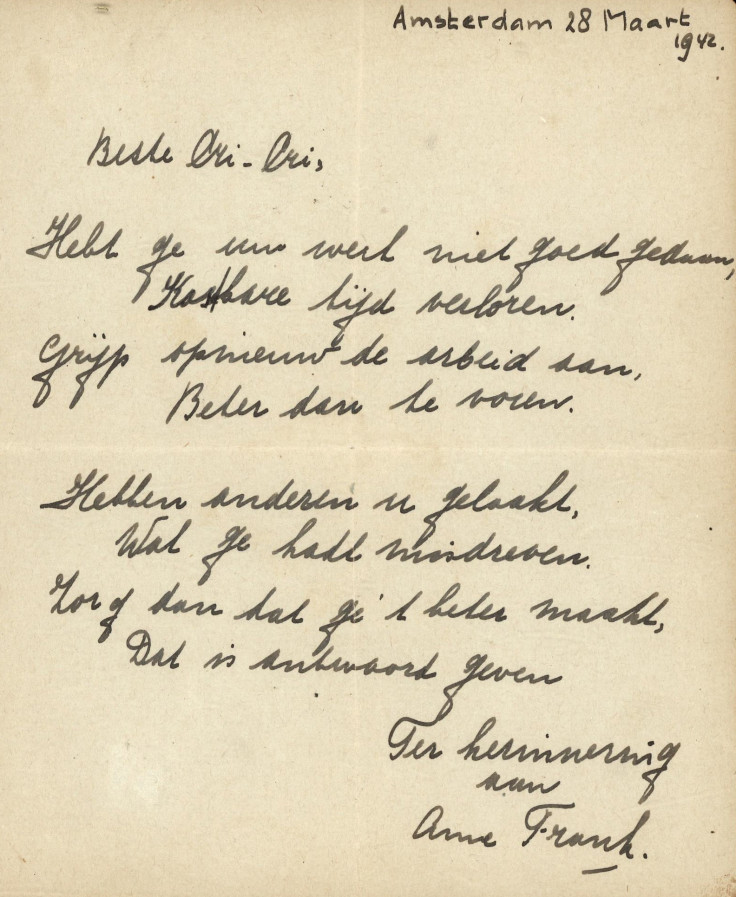World Poetry Day 2023: Keeping your heritage alive
Poetry has the unique ability to support linguistic diversity and give a platform for global recognition of diversity through poetic expression.

Every year, World Poetry Day is celebrated on March 21 to exalt the art form as being the highest and most noble form of expressing devotion and love. Throughout history, poetry has been practised in various forms as a way of expressing one's language, expressions and covert messages. During special occasions, poetry can be accompanied by music and performed in front of a live audience.
World Poetry Day seeks to bring people from all walks of life together by inspiring, educating and transforming both their minds and hearts. The United Nations Educational, Scientific and Cultural Organization (UNESCO) emphasises the unique ability of poetry to support linguistic diversity and give a platform for global recognition of diversity through poetic expression.
History of World Poetry Day
The earliest recorded poetry is believed to be the "Epic of Gilgamesh" during 2000 B.C., but with spoken tradition, poetry could have started long before. World Poetry Day originated in Paris during the year 1999. The day was proposed and adopted by UNESCO during their 30th General Conference to "give fresh recognition and impetus to national, regional and international poetry movements."
This special holiday commemorates poets of the past and present as oral traditions of reciting poetry is being revived. By making poetry accessible to all, a new generation of poets is encouraged to converge with other mediums of expression, such as music, dance and painting, to celebrate diversity and human unity.
Famous British Poets
William Ernest Henley is one of the most influential English writers to date. His masterpiece, "Invictus" is a globally revered poem that calls on its readers to resist and persevere in changing their fate. With themes of stoicism, fortitude and discipline, it is a timeless piece of poetry about never giving up.
Invictus
Out of the night that covers me,
Black as the pit from pole to pole,
I thank whatever gods may be
For my unconquerable soul.
In the fell clutch of circumstance
I have not winced nor cried aloud.
Under the bludgeonings of chance
My head is bloody, but unbowed.
Beyond this place of wrath and tears
Looms but the Horror of the shade,
And yet the menace of the years
Finds and shall find me unafraid.
It matters not how strait the gate,
How charged with punishments the scroll,
I am the master of my fate,
I am the captain of my soul.
Emily Jane Brontë is a female English novelist and poet best known for her novel, "Wuthering Heights." She is globally recognised as a brilliant poet and a feminist icon.
Long neglect has worn away
Long neglect has worn away
Half the sweet enchanting smile;
Time has turned the bloom to grey;
Mould and damp the face defile.
But that lock of silky hair,
Still beneath the picture twined,
Tells what once those features were,
Paints their image on the mind.
Fair the hand that traced that line,
'Dearest, ever deem me true';
Swiftly flew the fingers fine
When the pen that motto drew.
It will not shine again:
Its sad course is done;
I have seen the last ray wane
Of the cold, bright sun.
Elizabeth Barrett Browning is a poet from the Victorian era who started writing poems at the tender age of eleven. Her love for sonnets to her husband continues to be analysed by students and scholars alike as she uses poetry to address social issues relevant to her time.
How Do I Love Thee?
How do I love thee? Let me count the ways.
I love thee to the depth and breadth and height
My soul can reach, when feeling out of sight
For the ends of being and ideal grace.
I love thee to the level of every day's
Most quiet need, by sun and candle-light.
I love thee freely, as men strive for right.
I love thee purely, as they turn from praise.
I love thee with the passion put to use
In my old griefs, and with my childhood's faith.
I love thee with a love I seemed to lose
With my lost saints. I love thee with the breath,
Smiles, tears, of all my life; and, if God choose,
I shall but love thee better after death.
Write a poem of your own to express your happiness at being able to celebrate the shinier things in life, or you can gather inspiration from the timeless British classics.
© Copyright IBTimes 2025. All rights reserved.






















